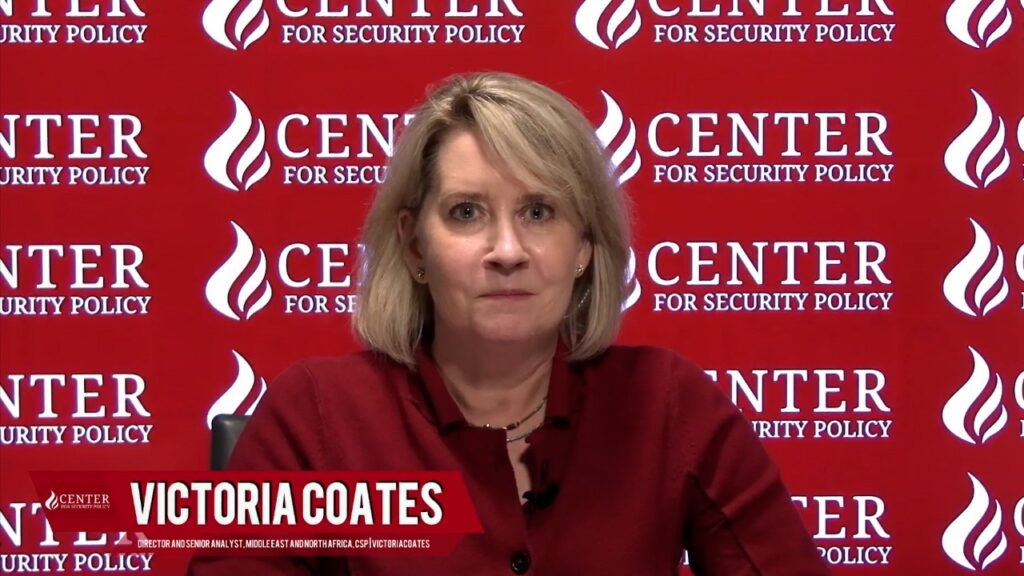Why the United States, not China, needs to shape Middle East policy

Why the United States, not China, needs to shape Middle East Policy
Other content: https://www.youtube.com/watch?v=W2oPXD9TSTk https://www.youtube.com/watch?v=FQF_-52IypU The appearance of U.S. Department of Defense (DoD) visual information does not imply or constitute DoD endorsement.
TRANSCRIPT:
I’d like to talk a little bit today about why the generational struggle that’s been very clearly identified between the United States and the People’s Republic of China demands our attention to the Middle East. There is a false, if comforting narrative that we can pivot away from the Middle East, from the entanglements of the last two decades to focus on the Pacific and on China. And somehow, this will not have any lasting repercussions for us.
I mean, certainly, the Biden administration’s surrender of Afghanistan suggests that they think that no matter how bad the calamity in the Middle East, it is worth it to extract American interests from the region. And there are three reasons I would say that that ultimately is a false narrative and a false assumption. The first being the location of the Middle East as the crucial crossroads between East and West.
The second being the undeniable preponderance of energy resources in the region. And the third being the emerging tech center in the region. And all three of these things, which we might not have considered national security interests 50, 25 years ago now have to be first and foremost in our minds as we think about national security issues.
So starting with the trade routes, we all saw what happened this spring when one ship in the Suez Canal so snarled global supply chains that we’re still feeling the ramifications and we’ll well into next year. So it’s everything from the Red Sea Lane to the Suez Canal that create the sort of vital connectivity of global commerce.
And so for that reason, I think the United States needs to be a present, a forward leaning partner to our regional allies to make sure those lanes stay open. Second, obviously natural resources. As much as the Biden administration likes to talk about the transition away from fossil fuels to renewable energies, that is not going to happen with the flip of a switch and what needs to be managed strategically. So the United States and our allies enjoy the plentiful energy that we have beneath our feet here and beneath the feet of our regional historic allies in the Persian Gulf, and not to mention our Israeli and Egyptian allies in the Eastern Mediterranean.
So just relinquishing that energy abundance and preemptively surrendering to unreliable what are now unreliable renewables without establishing the civil nuclear or the hydrogen and of course, the natural gas that we need to continue to fuel ourselves is nothing short of foolhardy.
And as we look for mechanisms to stabilize global energy markets, I think we should talk to our allies about establishing a new mechanism rather than something like an OPEC in order to achieve that stability. And finally, we have tech.
We have to look first and foremost in Israel. The Startup Nation, Israel has announced a series of just extraordinary benchmarks this this week in terms of increased investment in Israel, increased tech valuation of their of their sector. It’s an extraordinary development and one that has been fueled and supported by the United States, and it should be done in partnership with the United States.
And we know the People’s Republic of China is deeply interested in acquiring this technology. They are not always gentle with things like intellectual property. And so I think it is enormously important that we safeguard Israel’s extraordinary technological advances.
We know they very much want to partner with their new friends, particularly UAE and Bahrain, but also announcing deals with Qatar, for example, this week. Very hopeful that they would grow closer to Saudi Arabia. This technology can be a boon for the region, but only if, again, the United States is helping to safeguard it from Chinese penetration and ensuring that these three vital security, a vital national security interests of the United States, are protected in the Middle East.
So that, in short, is why countering China demands we go through the Middle East region. Thank you.
“The appearance of U.S. Department of Defense (DoD) visual information does not imply or constitute DoD endorsement.”
- When David Met Lisa - December 20, 2021
- Why the United States, not China, needs to shape Middle East policy - December 20, 2021
- Victoria Coates on the confusion in Natanz - December 10, 2021
